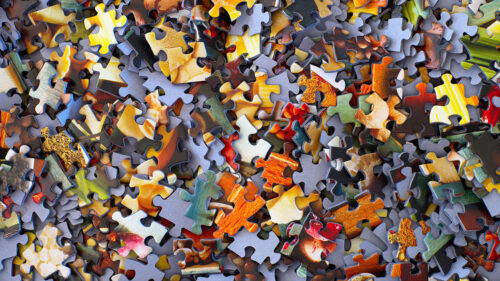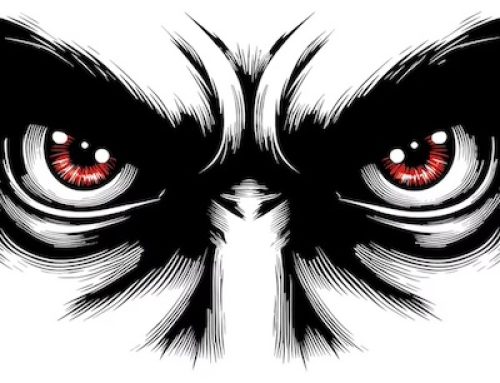The promise of globalism—of open trade and a common currency of exchange—that would obviate the need for borders and establish world peace is slipping back into the theoretical realm. Adjectives like “open” and “common” are being discarded in favor of a quasi-nostalgic preference for cultural handholds that provide a sense of comfort, security and, moreover, a compelling and clear answer to the question: “Who am I?”
This phenomenon—this new reality—explains much of what is going on in America and the world. From the perplexing so-called “great resignation” that attempts to explain why people did not run back to their old pre-pandemic jobs, to Putin’s attempt to put the Soviet band back together again.
It turns out that we do not favor being commoditized and homogenized. The pandemic inflamed this condition. We want our own particular identity founded in a sense of purpose defined not by market forces or dehumanizing algorithms, and especially not by government mandates. Rather, born from cultural subscriptions that represent a personal heritage of values we have decided—on our own—to make our own. We want our agency back.
Culture is a complex set of ideas and beliefs that define who we are and bind us together, or keep us apart. As powerful as our needs for safety, security, love, sex, self-esteem and self-actualization are (the Maslow hierarchy of needs), culture is the superstructure upon which we travel to express our reason for being.
Globalism was supposed to wash that structure away in the belief that rational economic forces and efficiencies would be preferred to the seemingly irrational subscriptions to cultural heritage including aspects of race, ethnicity, religion, gender roles, nationality, and even language. In short, the bet was that we would give up meaning for money.
That bet—once considered a sure thing by scholars of all disciplines—is collapsing before our eyes.
Putin is the current poster boy (however insane and evil) of this phenomenon. He represents the trend recently identified by Ross Douthat in the New York Times, based on the earlier work of the late Samuel Huntington, of “civilizationalism” that holds that people will fight to protect their particular cultural subscriptions over the liberal pull of openness and common interests even when it may not be in their political or economic interest.
Indeed, the model of the economically rational man that had driven so much of our policymaking in the 20th century now appears to be headed for obsolescence. I expect Putin will fail as he realizes that Ukrainians have moved on from the vestiges of Soviet culture. The power of Ukrainian identity—their hearts—will not yield to the power of his missiles—his muscle. He is motivated by a nostalgia for mother Russia, but forgot to check if this feeling still exists in Ukraine (if it ever did).
Trump recognized this trend before any other American politician. Perhaps less from any intellectual basis than his innate sense of human exploitation. Nonetheless, he pulled, tweaked, and occasionally yanked these cultural threads to stoke fear, anger, and above all, allegiance by those who saw their cultural identity in peril to support him even when it was contrary to their personal well-being. He knew that the things that defined who they thought they were—their sense of identity—was more important to them that the idealism of an open and inclusive America with liberty and justice for all.
This also explains why economists and especially our Federal Reserve Board of Governors are so perplexed about the employment decisions Americans are making today. Lo and behold: people are tired of carrots and sticks; they want the rich broth of meaning to guide their lives. The former chairman of the Federal Reserve Board, Alan Greenspan, came closest to identifying this false premise of the economically rational man in his attempt to explain the phenomenon of market “bubbles” late in his term. His observations are now coming into full fruition.
Culture trumping economics has some profound and worrisome implications. Conflicts between states and within them will compound as the deck of identity parameters is reshuffled to accommodate a world that desires division over unity; exclusion over inclusion. Nationalist impulses will continue to rise, as will regional and local preferences and dispositions.
Yes, there will be blood. And, not just in Ukraine.
Economics be damned. In an age of abundance, we have the luxury of caring about other things. People want to live their lives in association with those who identify as they do. The commoditization and homogenization of globalism is dead. Huntington’s arguments in The Clash of Civilizations and the Remaking of World Order (1996) are upon us, both at home and abroad.
In spite of rising conflict, there is, however, a silver lining. People are beginning to think for themselves again. They are listening to their hearts instead of their wallets. They are holding out for meaning over marginal economic benefits. They are showing a willingness to do the work of safeguarding their spirit rather than accept the products, services, and ideas as prescribed to them by unseen algorithms. They are reclaiming their humanity on their own terms. They have decided to be true to themselves (however they define that).
It will take years to move back to a model of purpose and meaning from the model of the economically rational man. But that is now underway. For the moment, most of our leaders and policymakers are perplexed and confused; living in their own myopic bubbles. Economic forces will remain, which to a certain degree is as it should be. However, culture is returning as the superstructure we embrace to guide our lives—for both better and worse.
This phenomenon will shake out eventually establishing a new equilibrium—a new understanding of how the world works. In the meantime, a lot of things will get broken.
It is time to hang loose and keep your head down while doing your own deep dive into what your life means to you. Yes, that’s okay again. You be you. But, keep your head on a swivel. The Putins and Trumps of the world will continue to search for angles of exploitation. Chaos is their friend.






